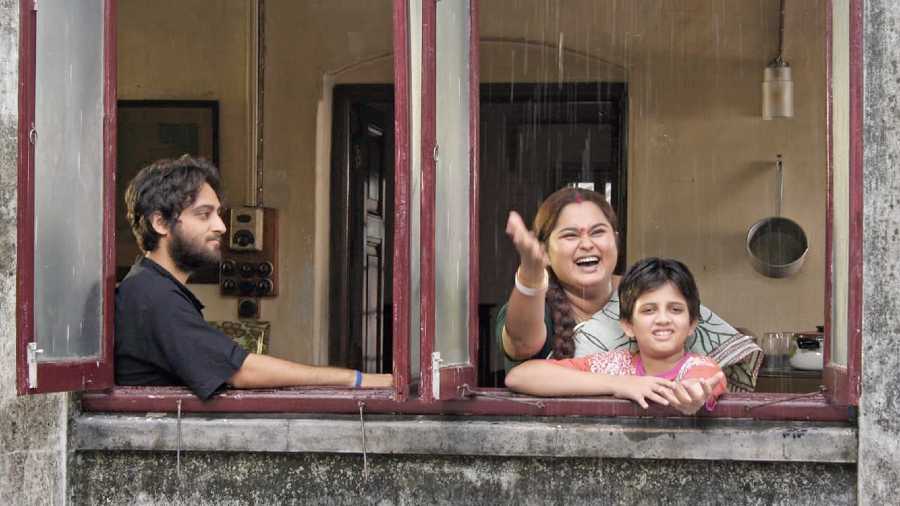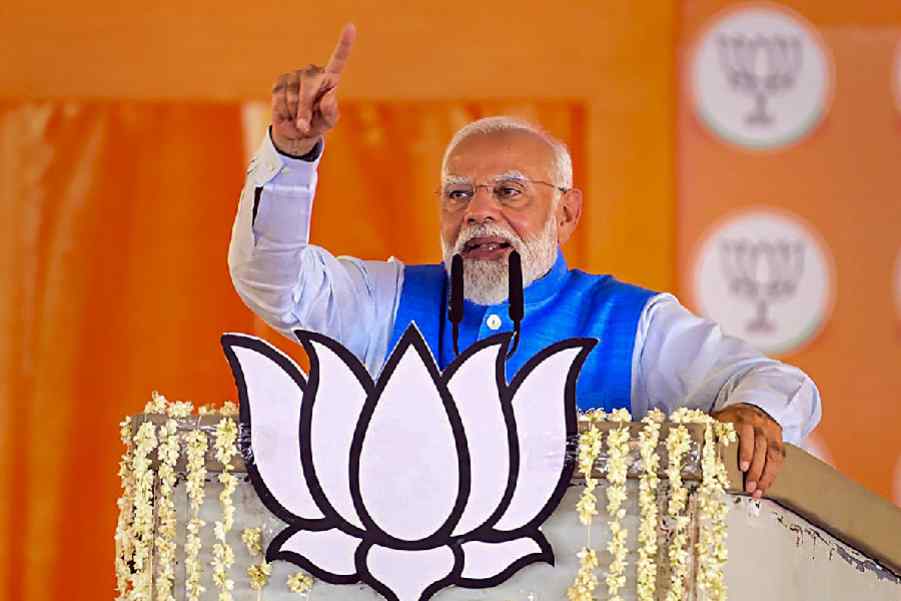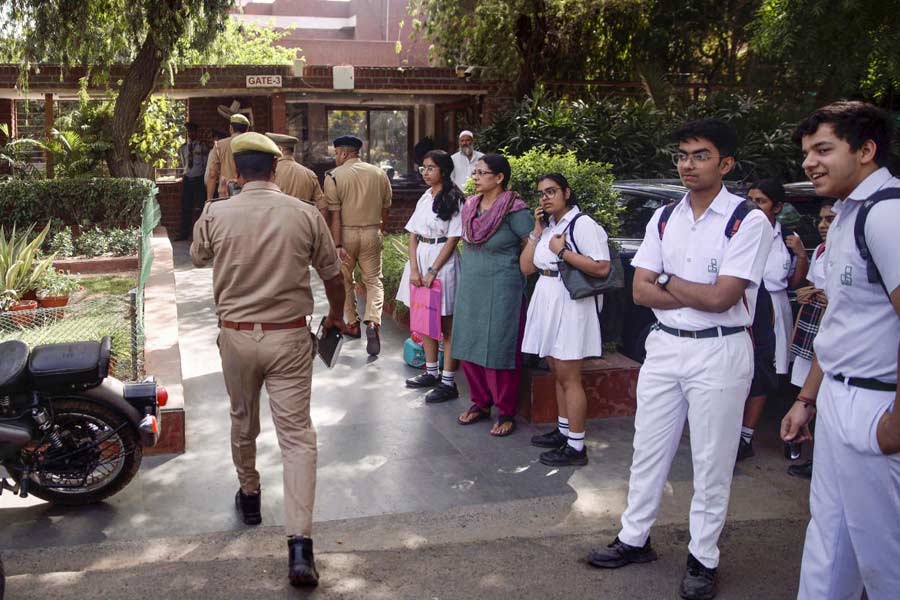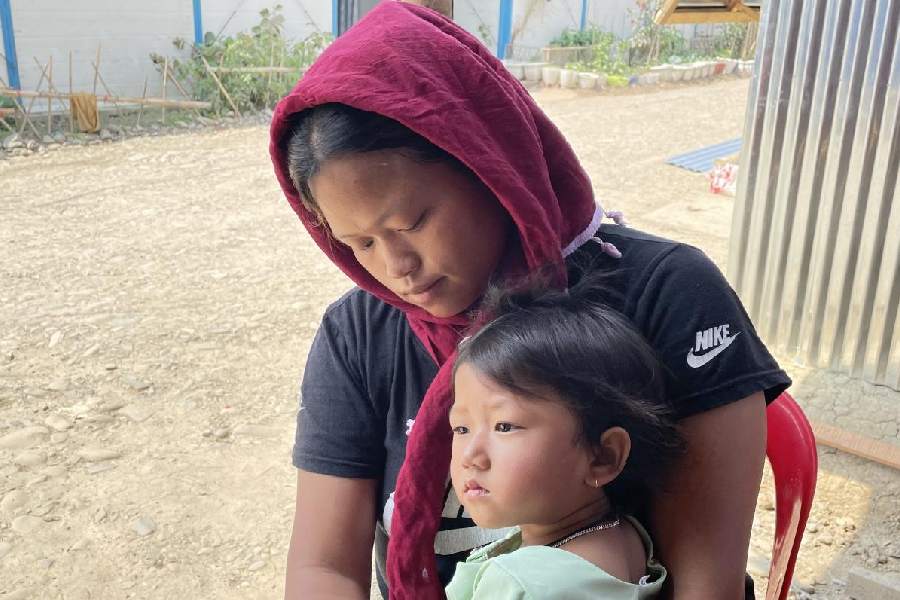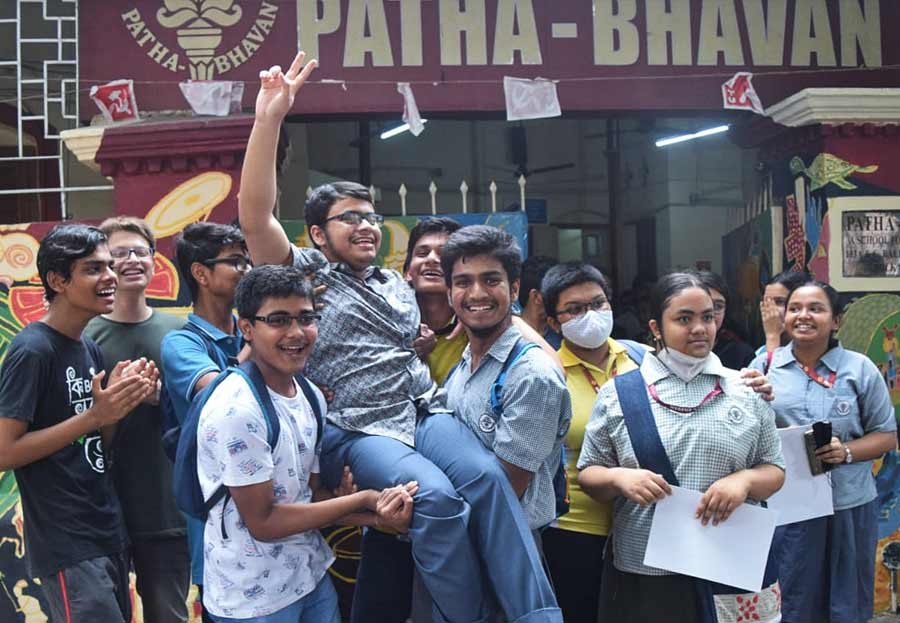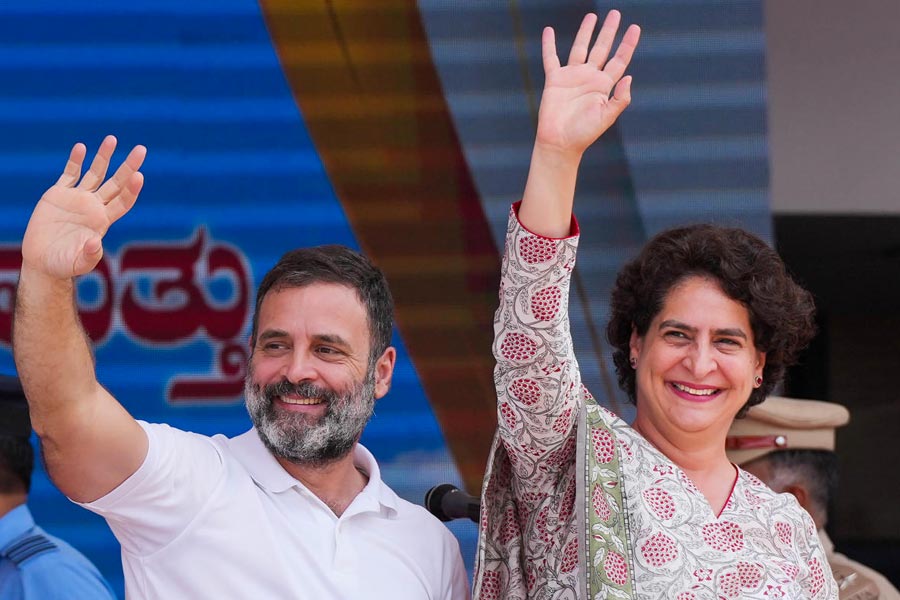The year was 1999. Both Didi (Nandita Roy) and I were working for a channel when an offer came from Dada (Nitish Roy) to write a film for him. Based on author Suchitra Bhattacharya’s novel by the same name, we wrote the screenplay and dialogues of a film that we later made. It was called Alik Sukh. By this time, I had worked with Rituparno Ghosh as an actor in Dahan and Bariwali and was the creative producer of the talk show, Ebong Rituparno. Excited about our first tryst with a film script, we narrated Alik Sukh to him. He was impressed and said, ‘Why don’t you write for yourselves?’ That, in a nutshell, set the ball rolling for us.
For our first script, we turned to Suchitradi’s short story, Iccher Gaach. We kept the title, Icche. At that time, the Bengali screen was ruled by girl-meets-boy-and-falls-in-love stories. Ours was different. It was about an obsessive mother and her son with an unusual ending for the times we were living in. Also, we had set our hearts on Sohini Sengupta and Samadarshi Dutta, a different sort of a casting. In fact, I was taking a walk around Deshapriya Park, when I saw a slightly obese mother dragging her child along, who probably couldn’t play cricket so well that day. So, the mother was screaming at him, accusing him for ruining all her dreams. As the drama played out in front of my eyes, I ran to Didi and said, Sohini it was for us. To get Samadarshi, we had to wait for one whole year as he was studying at FTII. We knew it wouldn’t be easy making the film, and we were very right.
We met a producer in Bengal. He said if the mother is portrayed as the villain and if she parts with her son at the end, the film is bound to turn turkey at the box office. He suggested that popular actors be cast instead of Sohini and Samadarshi and to chop off the scene where the mother secretly reads the love letter of her son. I heard him out and quietly made an exit. After that, I met countless producers, who cried, got emotional but offered us to remake a film instead.
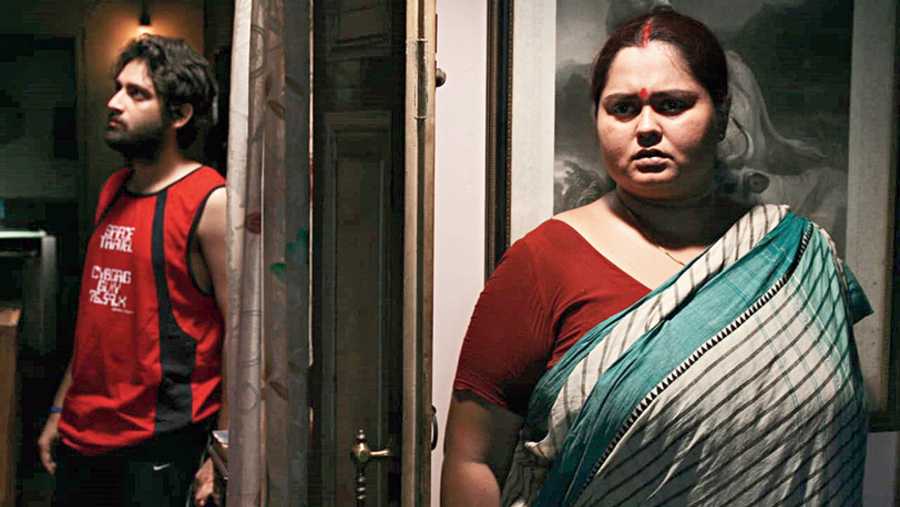
The Telegraph
Between 2002 and 2008, we met almost 60 producers, who rejected the film. I also made different kinds of budgets — 16mm budget, 35mm budget, digital budget — so as to be ready for any offer that came our way. None came.
My dearest friend, Rituparna Sengupta, also the presenter of the film, was there for us since the inception of Icche. Even she was moved by our constant struggle and asked once if we could change the story a bit in order to get a producer. We were not up for it.
In between, there was a strange turn of events; a friend of mine narrated the subject to Smriti Irani, who had not yet started her political career. She liked it immensely and said she wanted to produce it in Hindi; she also expressed the desire to play the mother. But we had decided that we would make our first film in Bengali. People travel to the Maximum City when opportunities come their way, but we boarded a train to Mumbai to say no to Smriti Irani. She said if ever we felt like making the film in Hindi, we should let her know. We nodded. In 2007, we were doing 14 non-fiction shows on television, but on December 31, we quit all of them and decided to make films or wait with the savings that we had till an opportunity knocked on our door.
In 2008, Rituparna introduced me to Rakesh Singh, who was ready to produce the film. We were elated, but our problems were not going to leave us so soon. Even though Rakesh did everything to make the film happen and supported newcomer directors with all his might. On May 28, 2008, we began filming Icche. We completed the film in 28 days and the budget was Rs 42 lakh. As it was our first film, we didn’t take any remuneration for it. Didi and I made the film for free. After making the film, we screened it to the head of a satellite channel; we wanted to ensure that the money was returned to the producer at the earliest. After seeing it, he was ready to buy the film and even sign the contract the very next day by paying almost double the film’s production cost. Before the contract could be signed, I got a call from the satellite channel’s office. They informed that they would not be able to buy the film, as there were some legal issues. The film had many stakeholders and all of them did not agree at once. My world came crashing down. This continued for three years.
Those three years gave me the same feeling as the lockdown, as if I was trapped without any fault. At that time, it was Icche and now, it’s Belashuru, even though the problems are very different. Back then, we would screen the film to our friends. He/she would watch the film inside a closed room and we would sit at the door, trying hard to gauge the reactions from outside. People would laugh and cry and every time they did so, our conviction would get validated. Among those who watched the film was poet Sankha Ghosh. A man of few words, he said it was an important film that should get released in theatres.
His words of assurance warmed our hearts at a time when people from the film industry had told us that the film would never see the light of day. They joked and said, ‘Icche had slipped into coma’. In between, we made two other films, Hello Memsaheb and Accident. They too got stuck in the cans and this time, everyone was sure that we were ‘unlucky’. We would hear such remarks day in and day out, but still remained positive.
Then, one day in 2011, Rakesh Singh called up to say that Icche is slated to release on July 15. Both Didi and I cried and cried and kept thinking about the release. We had lost all our money and whatever little was left, we were doing the pre-production of Muktodhara with it. In fact, when Rakesh called, I was at the Presidency Correctional Home. So, here, we were without any money trying to promote our first film that meant the world to us.
July 15 was not really a good day for releasing a Bengali film. It was releasing alongside a Harry Potter film and also Zindagi Na Milegi Dobara. Back then, Delhi Belly was still running and Murder 2 that released on July 8 was a huge hit. The following week, Singham was about to release and after that there was Aparna Sen’s Iti Mrinalini. So, it meant that Icche could release only for a week and if it did not work, it would just disappear like a dream unfinished.
But we took up the challenge. We were all set to launch the trailer. A renowned film-maker was supposed to launch the trailer, but he backed out the previous night. Finally, master film-maker Mrinal Sen agreed to do the honours and he supported the film whole-heartedly. Thankfully, the audience loved the poster and the trailer and we could move ahead with the release.
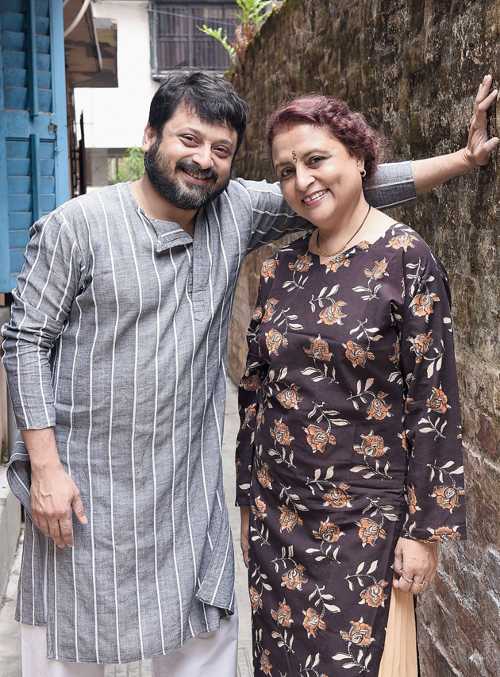
The Telegraph
The premiere of the film was scheduled a day before the release. Rituparna had invited everyone from the film industry. The show was at Priya Cinema at 7.15pm. Just when I was about to leave home, I got a call from one of the stakeholders of the film, who said that Icche cannot release. I reached the theatre and called up Dadulda (Arijit Dutta, proprietor of Priya Cinema) to ask if the ‘film can’ has reached him. He said ‘not yet’. I again got a call from the same man, who said I was just wasting my time at the premiere. My friends from the media were there and they surrounded me to ask if I was a nervous wreck as it was our first release, I didn’t know what to say as I was not even sure anyone could see the film. In a while, Dadulda called back to say, the can has reached him and now, no one could stop the film.
I was sitting outside Priya Cinema all through the screening. Then, when the first show ended, I went upstairs and the first person I bumped into was a well-known producer. He was wearing a glum look on his face. He said I had killed a beautiful subject just by casting Sohini. He left. Others were also leaving. But wait, what did I hear? Were they all heaping praises on the film? Everyone who came out of Priya Cinema that evening gave a heart-warming review, they said they could relate to every moment in the film and that it tugged at their heartstrings.
The same film-maker, who had backed out of the trailer launch, was present at the premiere. He called up late at night to say the film will be a blockbuster. “You have played a gamble by casting Sohini and it has worked,” were his exact words.
Icche released on July 15. On the first day, only 35 people turned up at Priya Cinema. Most shows of Icche were at noon. By evening, the multiplexes decided to take the film down as there was hardly any audience. I went to visit a plex on the day of the release. I was shocked to find that the banner was removed. I asked the manager the reason behind it and he said the plex had decided not to run it. I was mad at him, but he said, the film had become ‘stale’. I called up my distributor, Subhash Dutta, who said the film was three years old and I couldn’t expect an audience for it. He said there was no star in the film and it would at the maximum run for a week.
On Saturday, the plex shows were gone. In single screens, there were only matinee shows and the Priya Cinema timing was 2.45pm. The only ray of hope was that 300 people turned up at Priya on Saturday afternoon. On Sunday, I was again back at Priya Cinema at 2.30pm. I was curious to see our audience, I wanted to know who they were. At 2.40pm, there was a long queue. Dadulda was standing at the balcony. Standing below, I asked Dadulda if the queue was for Harry Potter. He shouted back from the balcony to say, ‘It’s all yours, dude.’ Icche got its first housefull show. It was the same at Star Theatre, Jaya (Lake Town) and Mahua (Garia). Then onwards, there would be a traffic outside Priya Cinema because of the huge turnout to catch the film.
From second week, we got a 4.40pm show at Priya Cinema. For the next 10 years, that became our show time. Icche ran in Priya Cinema and Star Theatre for 15 weeks. After the first week, word of mouth spread like wildfire. We started getting more and more shows. By the time the film entered its third week, it was running in 50 single theatres.
I met one man outside Priya Cinema who had seen the film 28 times. Taking a pensive drag from a cigarette stuck in between his two fingers, he said he had returned to catch the film’s final scene. Icche created a repeat audience. At Jaya, there was no banner when I visited it on one occasion. I asked the usher if the film was still running. He said, there was a housefull show inside. I remember another usher at a theatre who asked me if I felt it’s only mothers who raise their children, and said a father’s role was equally important. Then, a group of mothers landed at our office during the film’s run. They were so agitated by the film’s ending that they asked why the son had to leave and that mothers indeed do everything to raise their kids. They came with only one demand — the son had to be brought back. We heard them out in silence.
The film was slowly creeping into every adda in the city, it was talked about, discussed, debated. At this point, when the film was in its fourth week, the renowned director called me one more time. This time around, he said why wasn’t I telling the media that he was the first one to have predicted that the film would be a blockbuster. I chose to stay mum.
Because the film remained stuck in the cans for three years, we could not send it to any festival. Neither was it considered for any award. But it was loved by many and that was the biggest gift that the film gave us. People still talk about the film and therein lies our success.
Icche was a victory for independent directors, for single screens, for films without stars. At a time when the single screens are dying a slow death, I fear, with them will die many such Icches, films that need genuine audience support, that connect of the heart, love and affection that come without any pre-conceived notion. I miss the time when a random movie-goer would just buy a ticket on a hot summer evening to escape the heat and keep himself entertained and discover, much to his surprise, not just cinema, but life playing out on the screen and take home much more than what he had expected. Icche was not just a film, it was life.
The author is a Bengali filmmaker, writer and actor

